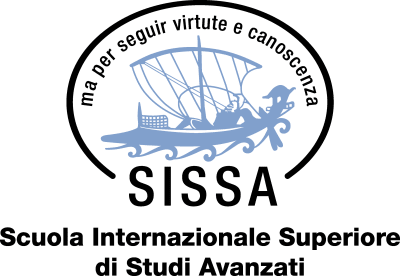
PhD in Mathematical Analysis, Modelling and Application
International School for Advanced Studies (SISSA)

Key Information
Campus location
Languages
English
Study format
On-Campus
Duration
3 - 4 years
Pace
Full time
Tuition fees
Request info
Application deadline
Request info
Earliest start date
Request info
Scholarships
Explore scholarship opportunities to help fund your studies
Introduction
Purpose of the Ph.D. Course
The aim of the Ph.D. Course in Mathematical Analysis, Modelling, and Applications is to educate graduate students in the fields of mathematical analysis and mathematical modeling, and in the applications of mathematical and numerical analysis to science and technology. The goal is to enable PhDs to work as high-level researchers in these fields in universities, research institutes, and private companies.
Research Topics
The activity in Mathematical Analysis is mainly focused on ordinary and partial differential equations, on dynamical systems, on the calculus of variations, and on control theory. Connections of these topics with differential geometry and reduced order modeling are also developed.
The activity in Mathematical Modelling is oriented to subjects for which the main technical tools come from mathematical analysis. The present themes are multiscale analysis, mechanics of materials, micromagnetics, modeling of biological systems, computational fluid and solid dynamics and problems related to control theory.
The Applications of Mathematics developed in this course are related to the numerical analysis of partial differential equations and of control problems. This activity is developed in collaboration with MathLab for the study of problems coming from the real world, from industrial and medical applications, and from complex systems.
Main research lines:
- Calculus of Variations and Multiscale Analysis
- Conservation Laws and Transport Problems
- Geometric Control Theory and Sub-Riemannian Geometry
- Mechanics of Materials and of Biological Systems
- Nonlinear Analysis
- Numerical Analysis
- Systems Biology
The most recent placements after Ph.D. at SISSA:
- Ecole Polytechnique (Palaiseau, France),
- University of Oxford (Oxford, UK),
- California Institute of Technology (Pasadena, USA),
- Carnegie Mellon University (Pittsburgh, USA),
- Hausdorff Center for Mathematics (Bonn, Germany),
- Rutgers University (USA),
- Universität Zürich (Zürich, Switzerland)
Curriculum
General Rules
The Ph.D. programme consists of three/four years of study and research.
The main selection procedure consists in an entrance examination. This is divided into two parts: in the written part applicants are asked to solve problems from a list given by the entrance committee. The oral exam consists of a discussion on the written test, on the topics studied in the university curriculum, and possibly on the applicant's thesis for the university degree or on other scientific achievements. The applicant's scientific qualifications and references are also taken into account.
Non-EU citizens may be admitted on the sole basis of their previous scientific activity, publications, and references, in a pre-selection procedure. They have to pass a "Qualifying Examination" at the end of their first year.
The student may choose among different plans of study oriented to the different fields covered by their Ph.D. course. In the first month of the Ph.D. programme, the faculty approves the individual plans of study, taking into account the scientific interests of the students and the skills already acquired in the previous university studies.
In the first year, students attend both basic and more advanced courses. To be admitted to the second year they are required to pass the examinations of the courses included in their plan of study. Students are invited to attend, without examinations, also some courses in fields different from those of their plan of study.
At the end of the first year, students start a research project, under the supervision of a faculty member or of an external collaborator approved by the faculty, in one of the research fields of the Ph.D. programme.
During the second and third-year students work on their research projects, participate in the seminar activities of the Ph.D. programme, and attend some courses. Examinations have to be passed only by students who worked in their first year in a different Ph.D. programme.
Students obtain the Ph.D. degree after submitting their Ph.D. thesis and defending it in front of an examination committee, whose members include SISSA staff members and international experts in the field. SISSA Ph.D. in one of the courses of Mathematics Area is by law equivalent to the Italian degree of “Dottore di Ricerca in Matematica”.